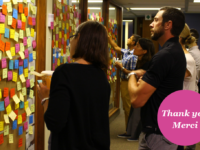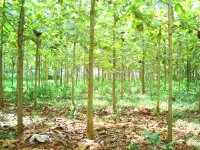The Flexi-Team helps advance top priority political projects, which could not have been implemented with the currently available staff. The team supports all divisions of the ministry that have temporary staff shortages due to absences or unfilled positions, or due to short-term projects. Furthermore, the Flexi-Team promotes a more flexible work environment in the ministry e.g. by establishing the use of modern knowledge management methods and by offering support in creative design processes.
Innovation Tag: Organisational Design
The OEE established a Social Innovation "UnLab" (SIU) to test an embedded innovation model and amplify energy efficiency policy and service impacts in Canada. The SIU creates value for energy efficiency stakeholders in three ways:
Building relationships and capacity for energy efficiency policy and service innovation;
Generating evidence and collective learning by co-creating and testing insights and interventions;
Amplifying impacts by scaling learning and implementing what works.
With the complex service system, it is difficult to help young people with numerous problems. The MY LIFE working method is a co-created, human service integration for young adults, complete with case management, a survey assessment, and an ePlatform.
We have brought together all data projects into a single programme to provide strategic oversight and a common vision. This encompasses a number of projects which are driving the department to better enabling data sharing, creating comparable datasets, open up our data for others to use and connecting our own data with others- transforming the way DCLG’s data can be used.
The service concept is based on findings in two previous studies in the field of social housing conducted in Sarpsborg: The findings showed that our municipal services were fragmented and complex. But, they also showed that the number of homeless in Sarpsborg was lower than the average on a regional and national scale.
Housing conditions are of importance for people’s lives, health development. We decided to do more of what we did well, and improve it. This brought about the project Way Home.
Two decades ago, 80% of Indonesia’s timber exports consisted of illegally-sourced wood. In order to combat this problem and to promote more sustainable forest management, the Government of Indonesia developed an innovative multi-stakeholder approach to ensure that wood products and raw materials would only be obtained or come from sources whose origins and management were legal and sustainable. Thus, the Timber Legality Assurance System (Sistem Verifikasi Legalitas Kayu – SVLK) was born.


